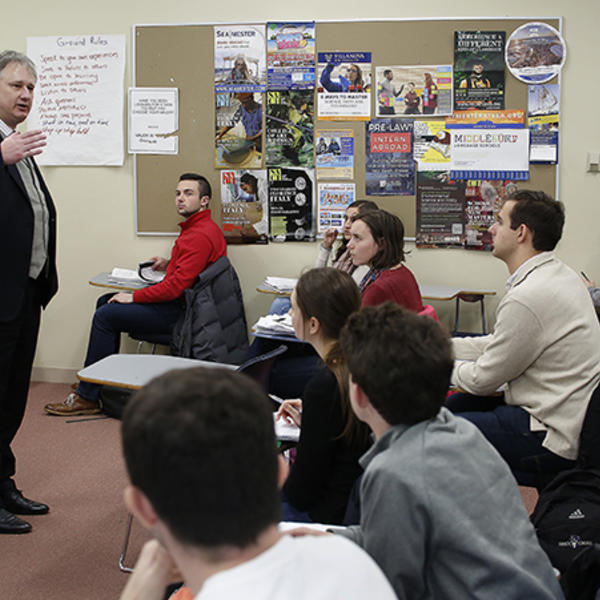Coordinated suicide bomber attacks targeting Christians and foreigners in churches and hotels in Sri Lanka on Easter Sunday left the nation reeling. But why would a nation that is predominantly Buddhist become the latest target of anti-Christian violence?
Writing for The Conversation, Mathew Schmalz, associate professor of religious studies at Holy Cross, says that while Christians constitute approximately seven percent of Sri Lanka's population, they have "a long history that reflects the dynamics of colonialism as well as present-day ethnic and religious tensions."
Schmalz, who spent time in Sri Lanka studying Catholicism and how it is practiced there, was called upon by several national and international media outlets to share his perspective on this past weekend's attacks.
In an interview with NBC News, Schmalz contended that the rise of extreme Buddhism may have had a "domino effect" prompting extremism among other groups. "I think extreme Buddhism has tried to fill the void in Sri Lankan society for a sense of identity," Schmalz said.
A sought-after expert on the Catholic Church, Schmalz is an experienced voice in the media, providing expert commentary in the The Washington Post and Newsweek, along with appearing in documentaries on A&E and &feature=youtu.be" target="_blank" rel="noopener">Vice.
To read the full article, go to The Conversation.
Additional Coverage:
- Associated Press
- The Washington Post
- NPR
- Relevant Radio
- Quartz
- Newsweek
- Religion News Service
- America Magazine
- Public Radio International
- Voice of Islam


